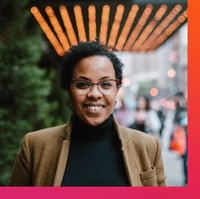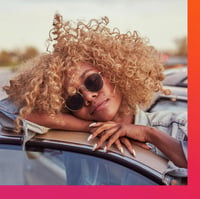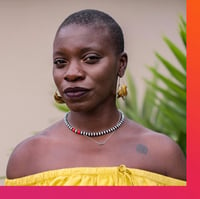It is without question that influencer marketing, brand partnerships, and the general discussion about inclusion need to progress in the immediate future. While many companies like Polaroid, Maserati, and Adobe, are taking positive actions to make their brands more inclusive, there is still a lot of work to do. On Thursday, December 10th, Julius and Day One Agency hosted a virtual panel discussion about diversity and inclusion in the influencer marketing industry. The panel consisted of the following:
Co-Moderators
 |
 |
| Henry Langer Senior Director of Customer Success at Julius |
Zeny Shifferaw |
Panelists
 |
 |
 |
| Grace Bukunmi Creative Director and Stylist |
Jessica Nabongo Travel Expert and Entrepreneur |
Tobi Shinobi Filmmaker and Photographer |
Authenticity matters, more than ever
To be impactful, it is important to first define what it means to be an ally. As Jessica Nabongo stated, “Allyship is someone that’s out in front of it. The ally is at the table that I’m not at. What it comes down to, is speaking up for those not in the room.” She continued to say, “The ally must be the person who’s saying ‘this campaign isn’t diverse.’ That ally needs to be able to see beyond themselves. Allyship is about listening, and giving others the chance to be heard.”
Langer pointed out that allies are responsible and should take action. He said, “What we can do, as people who have not had this experience, is help move the conversation forward.” What it comes down to is empathy, being aware, and heeding the actionable advice that the panelists have shared.
A path forward, starting today
What’s the best way for brands and marketers to start becoming allies? Zeny Shifferaw expressed, it’s important for companies, brands, and marketers to get out of their own echo chambers. Here’s what brands and marketers can do today to make a change according to the panelists:
- Treat BIPOC creators equally. Over the past few months, Instagram handle @InfluencerPayGap has blown the doors wide open, revealing how disparaging the BIPOC creator experience is when interacting with brands—it’s time for brands to start talking to creators of color the same way they do to others. As Nabongo said, “I am Black, but I’m still a person. Get away from the idea of, ‘How do I speak to this Black person?’ Approach me the exact same way you approach a white creator: with respect.”
- Plan for inclusion: focus on policies. Big change won’t happen overnight. Companies and brands must make it a mission, today, in order to see impact in the future. Bukunmi pointed out that many companies may not have company-wide guidelines to help their staffers make business decisions that drive inclusion. When companies take a stand, their employees will embrace them and make tangible differences.
- Plan for inclusion: focus on the c-suite. Shinobi remarked on how important top-down decision making, and having people of color in the c-suite will be an important step in a colossal change. These decision makers will set the tone immediately for the company, and for the future of the industry.
- Hire influencers as consultants. Nabongo noted that by bringing BIPOC influencers in as creative and strategy consultants, change can be made tactically at the ground level in the day-to-day outputs. “It’s about understanding, and by bringing on consultants and people you haven’t worked with yet can give new perspectives.” And further, Shinobi backed this suggestion, saying that this will qualify and legitimize strategic and creative approaches that will authentically resonate with audiences, as they come from the BIPOC community itself.
- Let creativity reign free. While there has been a lot of discussion in the industry about creative freedom surrounding branding and messaging with influencers, this is also an important part for underrepresented voices to be heard. As Nabongo stated, “I want to work with brands that allow me to be who I am. They’re not just coming to me because I’m Black, they come to me because I bring value to their brand and can help them access an audience they want to reach. Allow me to do my thing.”
- Create safe spaces. It is important for brands to create safe spaces for creators to give honest feedback and talk openly about the campaign, approach, and creative. Setting the tone for openness is essential for the talent to feel like they can push back, without dire repercussions.
- Start a real relationship. Like all influencer partnerships, approaching them with a desire to get to know them and learn about them on a personal level is incredibly significant on many levels. Shinobi said, “When you care about the people you’re working with and listen to them, you’re going to have meaningful connections.” He expressed his hope that influencer marketing can become more personal and relationship-based in the future, because when brands treat creators with respect and kindness, “diversity will naturally happen.”
Influencer marketing is in the midst of changing for the better. As Shifferaw stated, “The guidelines are being built while the train is moving.” Embracing the fact that the industry is in a transitionary period allows brands to remain open-minded for the possibilities of the future. Here at Julius we will continue to support and uplift underrepresented creator communities to the best of our abilities. For now, please continue to follow #InfluencersForInclusion and @Julius_Works on Instagram, and we hope to catch you at the next event.
-1.png?width=239&name=Julius%20By%20Triller%20-%20Wordmark%20-%20Purple%20(1)-1.png)







